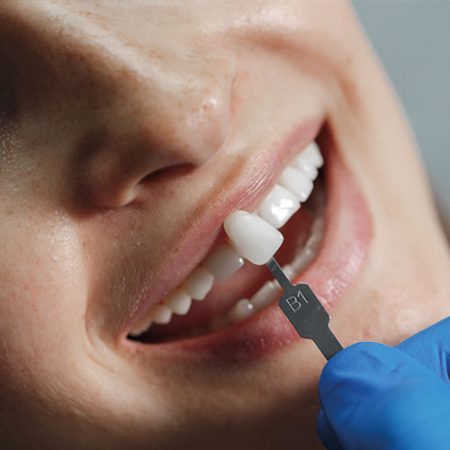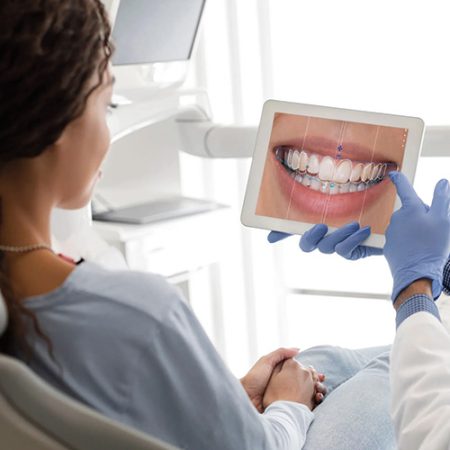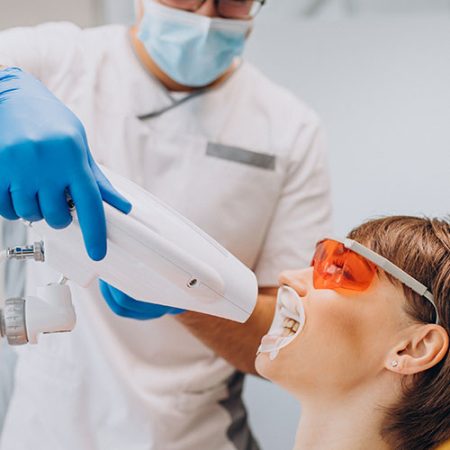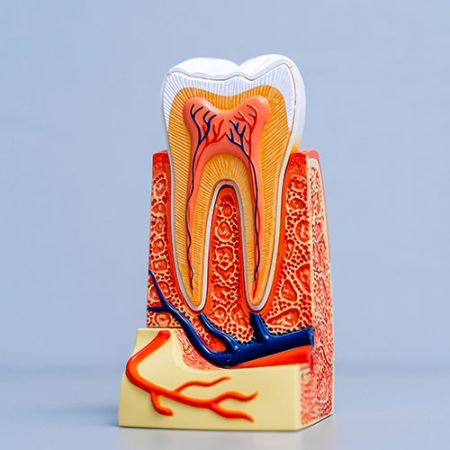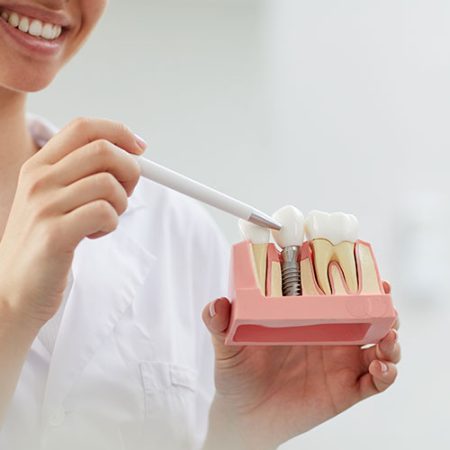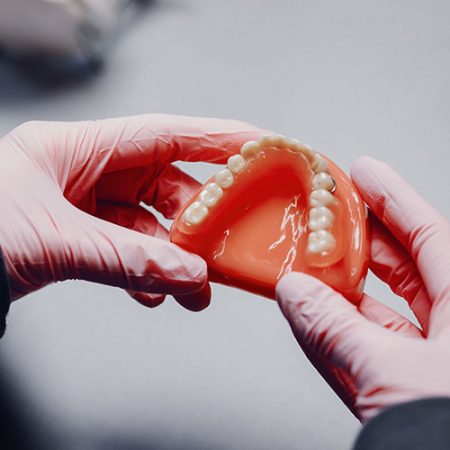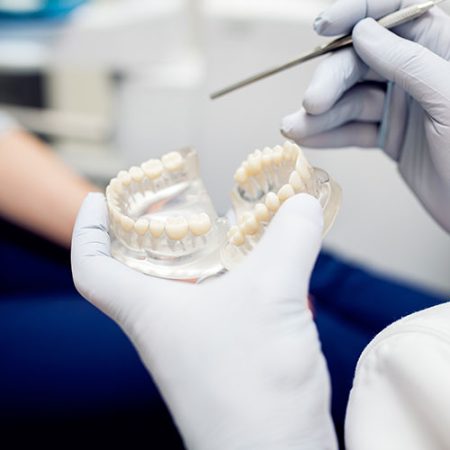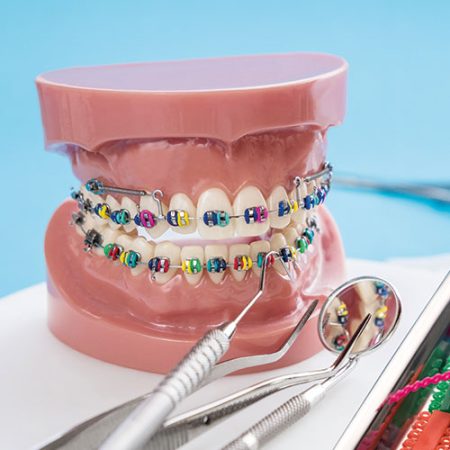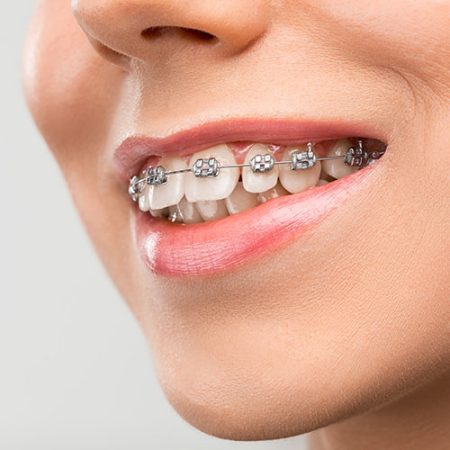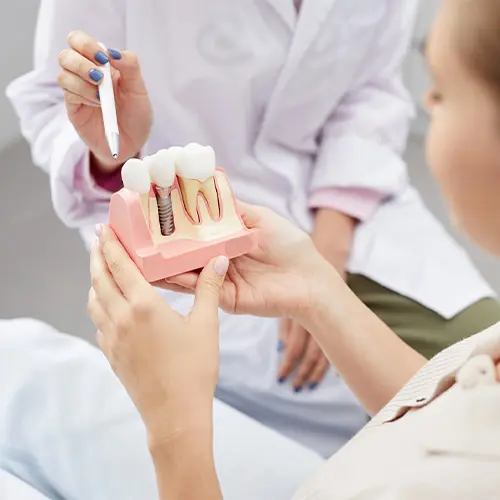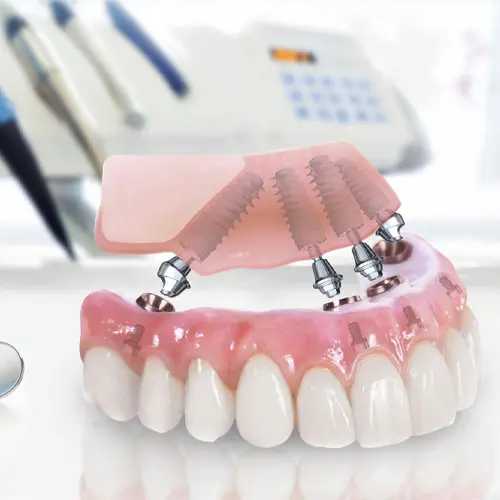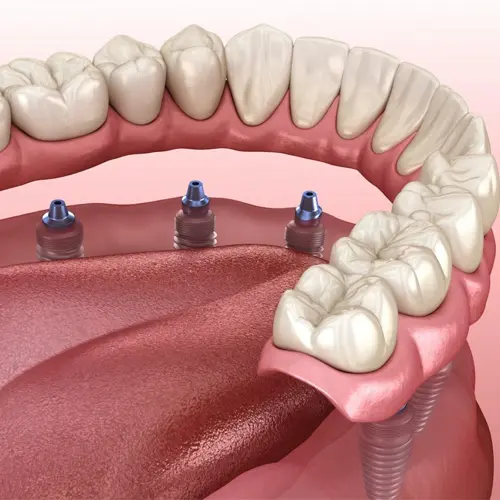All On Four Implant
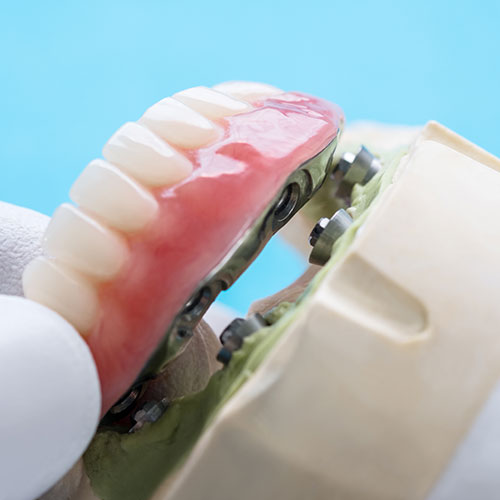
All On Four Implant
The “All-on-4 implant” or “All-on-4 treatment concept” is a dental implant treatment method developed for individuals with missing teeth or those who have lost their teeth. This method is used to replace all teeth in the mouth or a large group of teeth.
The All-on-4 implant treatment has the following key features:
Fixed Prosthesis with Four Implants: In the All-on-4 treatment, four implants (artificial roots similar to tooth roots) are placed in either the upper or lower jaw of the mouth. These implants are attached to a fixed dental prosthesis (crowns or bridges).
Integration and Healing: After the implants are placed, a healing period is typically awaited. During this time, the implants fuse with the jawbone (osseointegration). The healing period may vary from person to person but generally takes several months.
Fixed Dental Prosthesis: At the end of the healing period, a fixed dental prosthesis is placed on the four implants. This prosthesis is mounted on a specially prepared framework and designed to fit the individual’s oral structure.
Rapid Restoration: The All-on-4 implant treatment can provide faster results compared to other traditional implant treatments. It is suitable for individuals who want to quickly resolve their tooth loss problem.
Aesthetic and Functional Advantages: The All-on-4 treatment provides a fixed and aesthetic prosthesis to replace missing teeth. This prosthesis has a shape, function, and appearance similar to natural teeth.
Minimal Surgery: The All-on-4 treatment requires less surgery compared to some other implant treatments. This can help individuals experience less discomfort and faster recovery.
Solution to Tooth Loss Problems: The All-on-4 implant treatment resolves tooth loss problems and helps individuals regain their chewing, speaking, and smiling functions.
The All-on-4 implant treatment is an effective method for addressing complete tooth loss or the loss of a significant portion of teeth. However, this treatment method may not be suitable for every patient and should be evaluated by a dentist or implant specialist. It is important to consult a professional for more information and advice on implant treatments.
For a Comfortable Smile
Our Implant Treatments
For a Beautiful Start
Appointment Form



